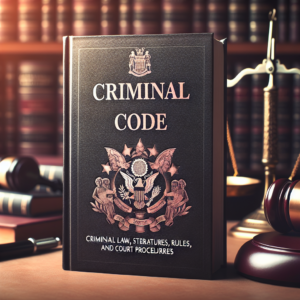Alarming Trends: Unveiling the Latest Shifts in Crime Statistics
In recent years, crime statistics have revealed a complex landscape of shifting trends that have raised alarms among policymakers, law enforcement, and communities alike. As urban areas grapple with rising rates of violent crime, other categories, such as property crime, have shown a notable decline. This article delves into the latest crime statistics, exploring the factors contributing to these changes, the implications for society, and the responses required to address emerging patterns.
Understanding the Context: An Overview of Recent Crime Statistics Trends
Recent reports from the FBI and local law enforcement agencies indicate a troubling rise in violent crime across various metropolitan areas in the United States. While the overall crime rate had been on a downward trajectory for decades, the onset of the COVID-19 pandemic appears to have disrupted this trend. Factors such as economic instability, social unrest, and increased gun violence have contributed to a resurgence in violent crime, particularly homicides and aggravated assaults. Conversely, property crimes, including burglary and theft, have seen a decline, suggesting a shift in criminal behavior that warrants further investigation. Understanding these trends is crucial for developing effective strategies to combat crime and enhance community safety.
Analyzing the Rise in Violent Crimes: Key Factors and Implications
The increase in violent crime can be attributed to a confluence of factors. Economic hardship resulting from the pandemic has exacerbated social inequalities, leading to heightened tensions and, in some cases, desperation. Additionally, the proliferation of firearms and a rise in gang-related activities have contributed to the surge in violence. The implications of these trends are far-reaching, affecting not only public safety but also community cohesion and trust in law enforcement. As violent crime rates climb, there is an urgent need for comprehensive strategies that address the root causes of violence while ensuring the safety and security of citizens.
Property Crimes on the Decline: What This Means for Communities
In stark contrast to the rise in violent crime, property crimes have experienced a notable decline in many regions. Factors contributing to this trend include increased security measures, advancements in technology such as surveillance systems, and a shift in criminal focus towards more lucrative cybercrime activities. The decrease in property crimes can be seen as a positive development for communities, fostering a sense of safety and stability. However, it also raises questions about the changing nature of crime and the need for law enforcement to adapt to these evolving threats. Communities must remain vigilant and proactive in maintaining safety, even as property crimes diminish.
The Impact of Technology: Cybercrime Trends and Their Consequences
As traditional property crimes decline, cybercrime has emerged as a significant threat, reflecting the growing reliance on technology in everyday life. Cybercriminals exploit vulnerabilities in digital systems, targeting individuals, businesses, and even government entities. The rise of ransomware attacks, identity theft, and online fraud has created a new landscape of crime that poses unique challenges for law enforcement. The consequences of cybercrime extend beyond financial loss; they can erode public trust in digital systems and compromise personal privacy. As technology continues to advance, it is imperative for law enforcement agencies to enhance their capabilities in combating cybercrime and protecting citizens from these evolving threats.
Demographic Shifts: How Crime Rates Vary Across Different Populations
Crime rates are not uniform across different demographic groups, and recent statistics reveal significant disparities based on factors such as age, race, and socioeconomic status. Young males, particularly those from marginalized communities, continue to be disproportionately represented in violent crime statistics. Additionally, systemic issues such as poverty, lack of access to education, and limited employment opportunities contribute to these disparities. Understanding the demographic nuances of crime is essential for developing targeted interventions that address the specific needs of affected populations. Policymakers must prioritize equitable access to resources and opportunities to mitigate the factors that contribute to crime.
Policy Responses: Evaluating Strategies to Address Emerging Crime Patterns
In response to the alarming trends in crime statistics, policymakers are exploring a variety of strategies to address the evolving landscape of crime. Community policing initiatives, investment in mental health services, and programs aimed at youth engagement are among the approaches being considered. Additionally, there is a growing recognition of the need for collaboration between law enforcement, community organizations, and social services to create comprehensive solutions. Evaluating the effectiveness of these strategies will be crucial in ensuring that they not only reduce crime rates but also foster trust and cooperation between law enforcement and the communities they serve.
The latest shifts in crime statistics present a multifaceted challenge that requires a nuanced understanding of the underlying factors driving these trends. As violent crime rises and property crime declines, the implications for communities and law enforcement are profound. By acknowledging the impact of technology, demographic shifts, and the need for targeted policy responses, society can work towards creating safer environments for all citizens. Addressing these emerging crime patterns will require a concerted effort from all stakeholders, emphasizing the importance of collaboration, innovation, and a commitment to social equity in the pursuit of justice and safety.


























